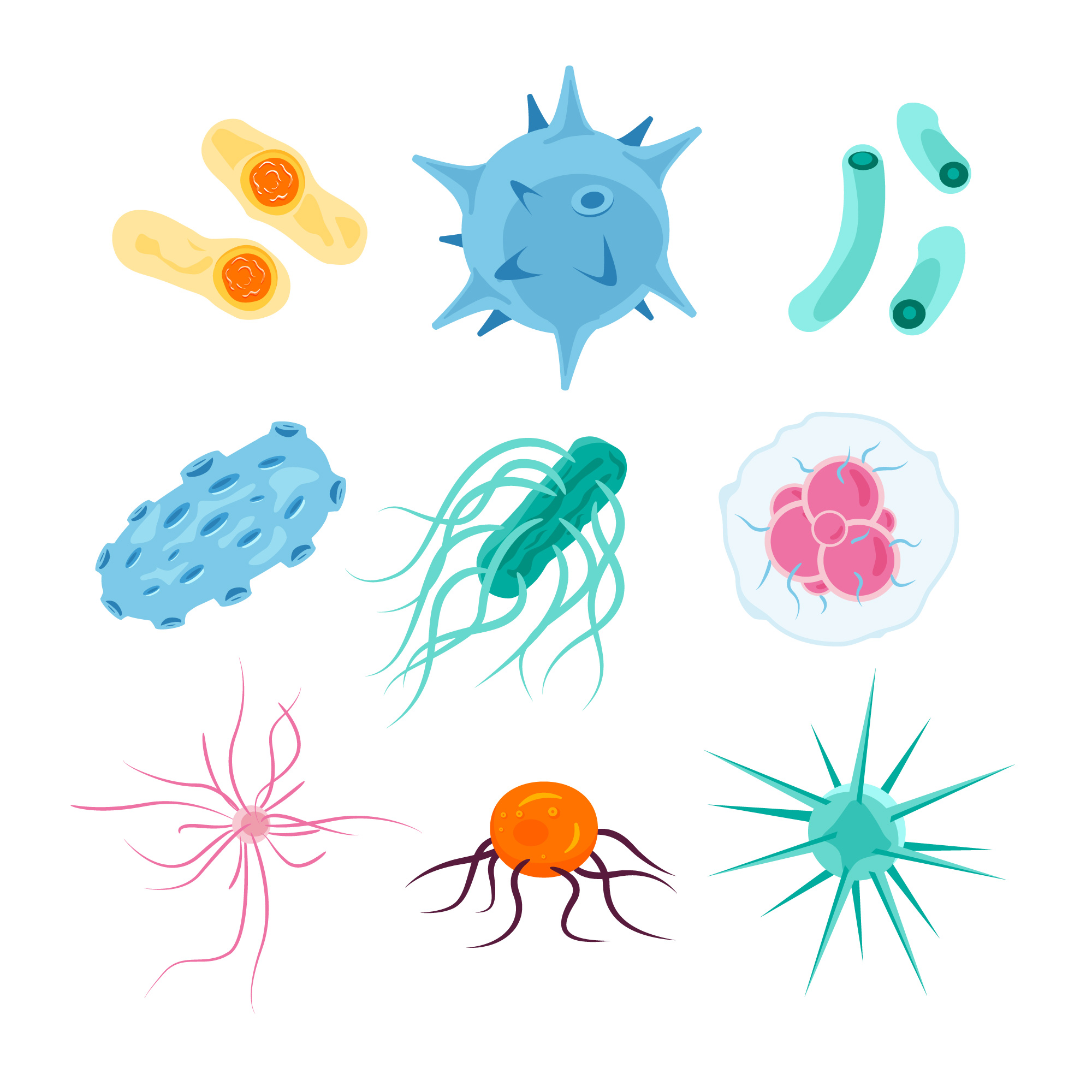Bacteria: Tiny but Mighty
Bacteria are tiny living organisms that can be found almost everywhere on Earth. They are so small that you need a microscope to see them. Even though they are small, bacteria play very important roles in nature, our bodies, and sometimes in causing diseases.
One of the main features of bacteria is that they are single-celled organisms. This means that their entire body is just one cell. Unlike our cells, which have a nucleus to hold the DNA, bacteria's DNA floats freely inside the cell. This makes them simpler than the cells in plants or animals.
Bacteria come in many shapes, such as rods, spheres, and spirals. They are much smaller than human cells. While human cells are usually about 10 to 30 micrometers in size, bacteria are often only 1 to 5 micrometers long. Despite their small size, they are very diverse and can live in many different environments, like soil, water, and even inside other living organisms.
Bacteria have a special cell wall that helps protect them and gives them shape. Inside this wall, they have everything they need to live, like ribosomes to make proteins and enzymes to perform chemical reactions. Some bacteria also have flagella, which are like tiny tails that help them move around.
One amazing thing about bacteria is how they reproduce. They use a process called binary fission. In this process, a single bacterium divides into two identical bacteria. This can happen very quickly, sometimes in just 20 minutes! Because they reproduce so fast, bacteria can form large colonies in a short time.
Bacteria have many functions. Some bacteria are good for us. They help us digest food, make vitamins, and protect us from harmful bacteria. For example, the bacteria in our intestines help break down food so our bodies can use it. Other bacteria are used to make food products like yogurt and cheese. There are also bacteria that help clean up the environment by breaking down waste.
However, not all bacteria are friendly. Some bacteria can cause diseases. These harmful bacteria are called pathogens. For example, Streptococcus bacteria can cause strep throat, and Escherichia coli (E. coli) can cause food poisoning. These bacteria can make us sick by producing toxins or damaging our cells.
Even though some bacteria can cause diseases, scientists have found ways to fight them. Antibiotics are medicines that kill bacteria or stop them from growing. It is important to use antibiotics correctly to make sure they work well and to prevent bacteria from becoming resistant to them.
In summary, bacteria are fascinating and important organisms. They are tiny but play big roles in our lives, from helping us stay healthy to causing diseases. By understanding bacteria better, we can appreciate their benefits and learn how to protect ourselves from the harmful ones. So next time you think about bacteria, remember that these tiny creatures are mighty in many ways!



